Too Close to Call
WTF America?
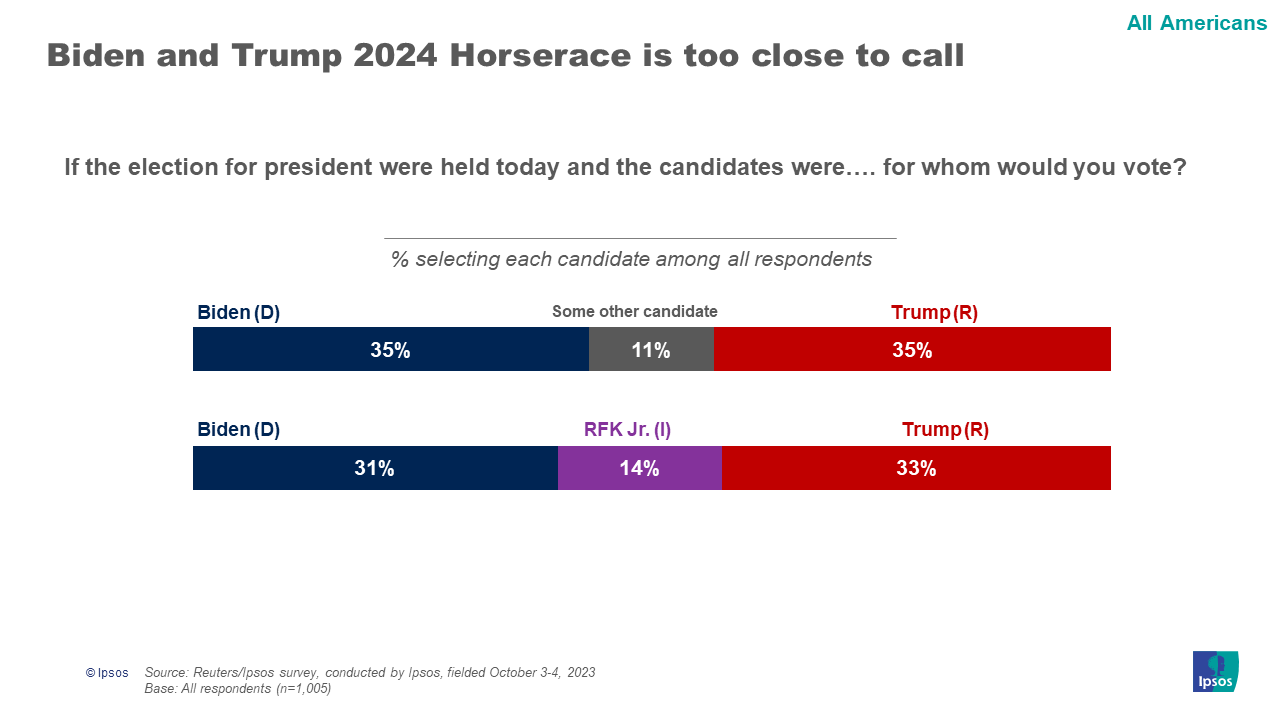
We are rapidly approaching another critical election cycle in the United States. Vital domestic issues such as economics, climate, and healthcare hang in the balance. Even representative democracy is likely to be on the ballot, albeit indirectly.
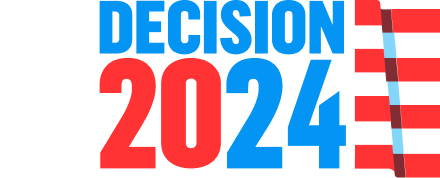
While there are multiple political parties, until ranked choice voting is implemented across all elections, realistically there are two parties. The key priorities of the Republican platform are to prioritize tax cuts for corporations and the wealthy, privatize Social Security and Medicare, raise the normal retirement age from 67 to 70, make abortion illegal, pursue drilling for new oil and gas reserves, remove protections for DACA, and cut off military aid to Ukraine. The Democratic party seeks to improve wages for the middle class, strengthen voting rights, strengthen Social Security, reduce Medicare costs by allowing the system to negotiate prices, address climate change through a transition to clean/renewable energy, increase taxes on the wealthiest Americans, and codify Womens’ rights, LGBTQ rights, race and gender equity, and gun violence protections.
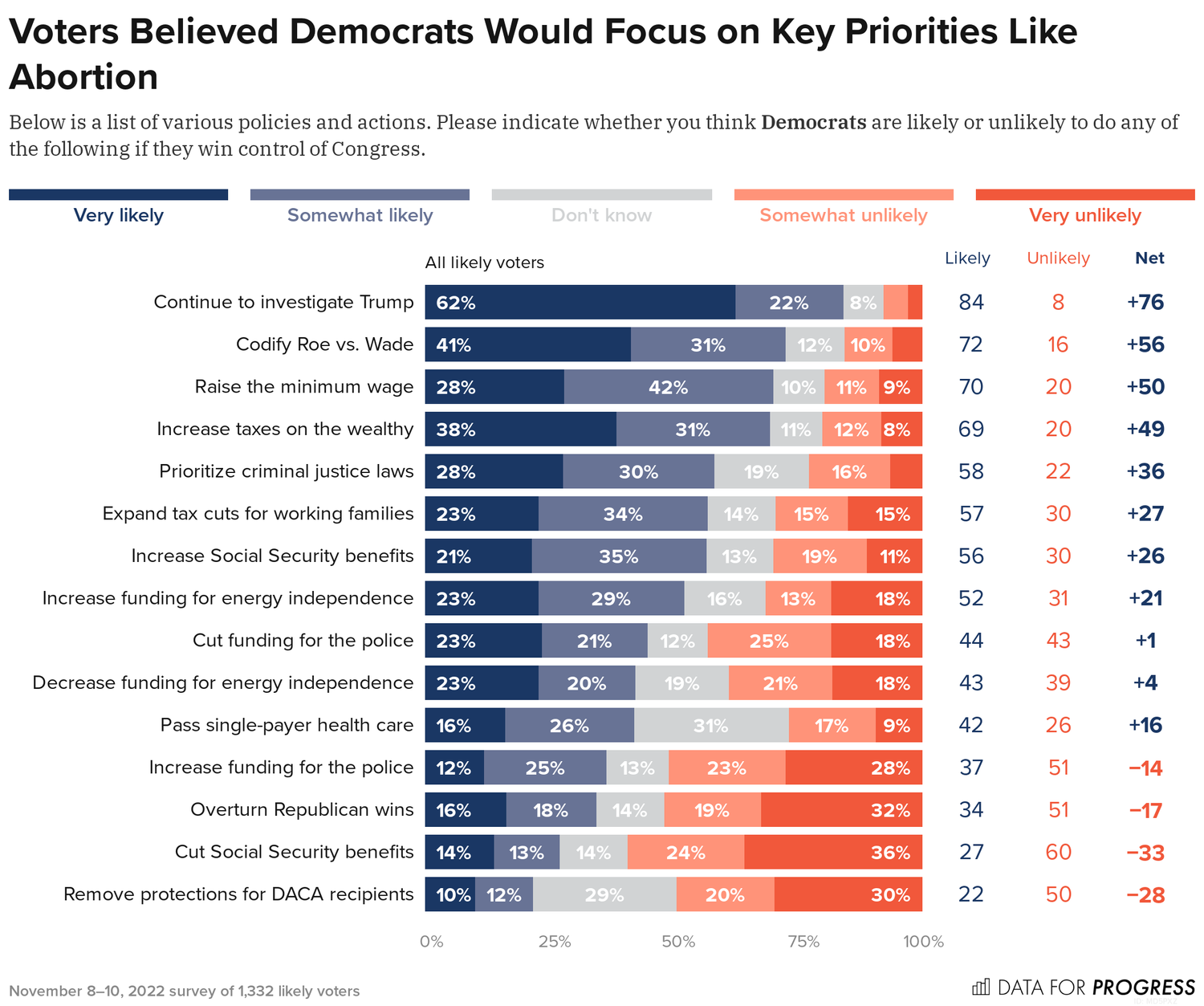
So if one political party is working to expand the middle class and grow wages for the majority of Americans, while the other major party is committed to cutting taxes for corporations and concentrating wealth to the top 1%, there's not a chance any election could be close. It would seem reasonable that one party would be generating 95% of the vote, and the party representing the "trickle-down" concentration of wealth to the top might generously receive 5% of the vote, right? (And I’m not even going to mention that the leading candidate of the party that is dedicated to the concentration of wealth has, as of this article, been indicted on numerous felony counts and is on trial in multiple courts throughout the United States).
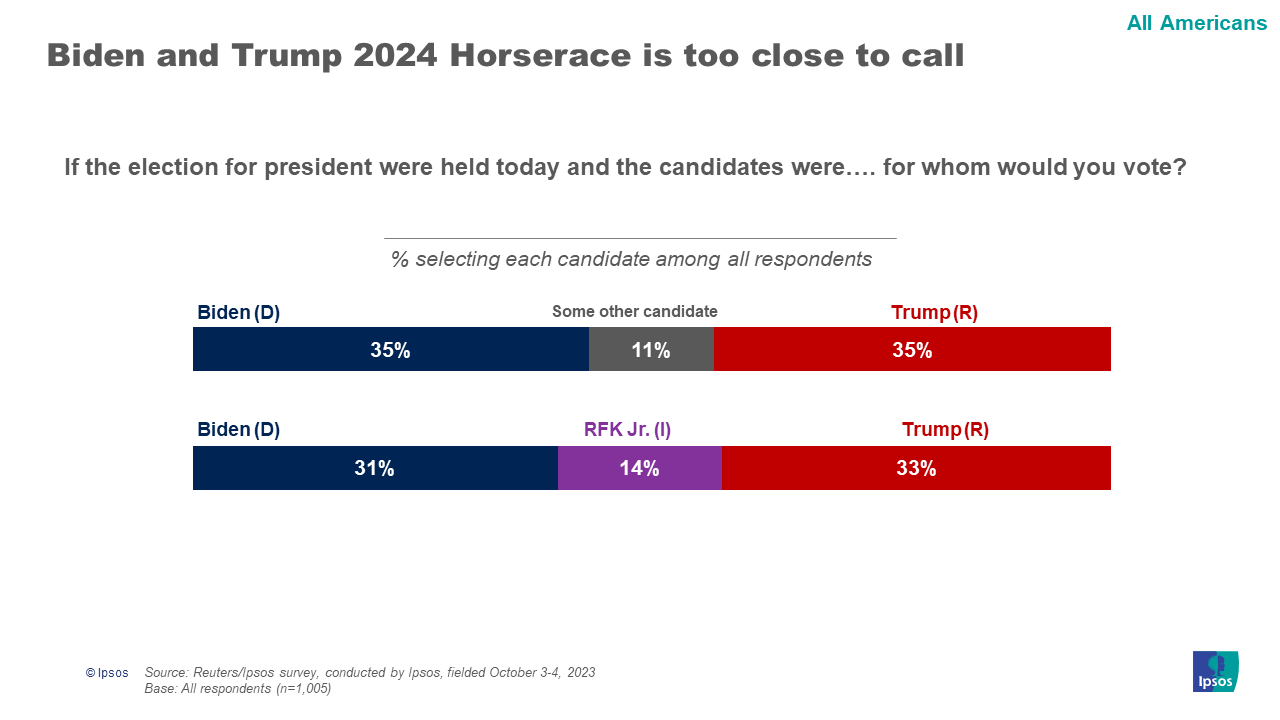
Wait, what the f^%*?
Dances with Polls
Over the next 13 months, we will be inundated with polls. Nate Silver’s 538, ipsos, Harris, Gallup, Emerson College, and others will produce poll after poll. While often inaccurate and meaningless, they often serve to verify whether my blood pressure control regimen is actively working. Regardless, of the increasing array of polls reporting changes in voter sentiment, from my perspective the polls (and election results) are relaying critical information and we, as a society, are not paying attention. If the platform and objectives of a political party align with a significant majority of American voters, why are elections close at all?
Democracy requirements.
Any attempt at any meaningful form of democracy requires an informed, educated, and engaged society. All three components (information, education, and civic engagement) have been assailed and eroded for multiple generations. And before any number of trolls respond with “ but ‘Murica is a Republic, not a Democracy” and “here’s some guy I saw talking about it on “Fox & Friends”, please read Constitutional Law Professor Lawrence Lessig on the matter here: https://lessig.medium.com/the-united-states-is-not-a-democracy-it-is-a-republic-54e8036c781c
Attack the information: The Media
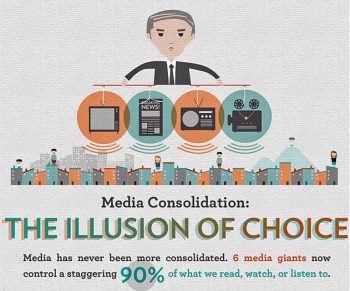
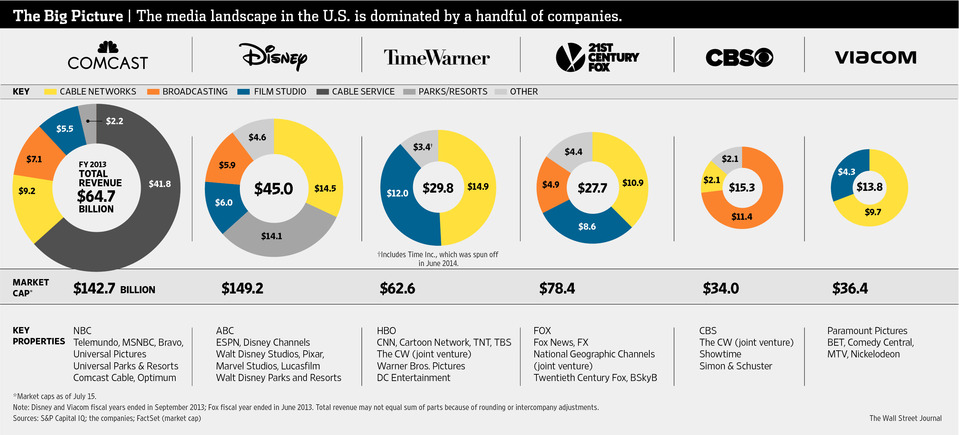
The book, “Manufacturing Consent: The Political Economy of the Mass Media” by Edward S. Herman and Noam Chomsky was written in a 1988 at a time when 90% of U.S. media was controlled by fifty major media companies. The book warned of the editorial bias (propaganda) of a communications system largely owned and controlled by the very wealthy.
Presently, 90% of U.S. media is controlled by six major media companies.
Why should we care?
In a study co-authored by Gregory J. Martin at Stanford Graduate School of Business and Joshua McCrain -
(see the Stanford Business Insight article by Edmund L. Andrew at: https://www.gsb.stanford.edu/insights/media-consolidation-means-less-local-news-more-right-wing-slant) focused on the impact of one conglomerate in particular: Sinclair Broadcast Group, which owns 191 stations that reach almost 40% of the U.S. population.
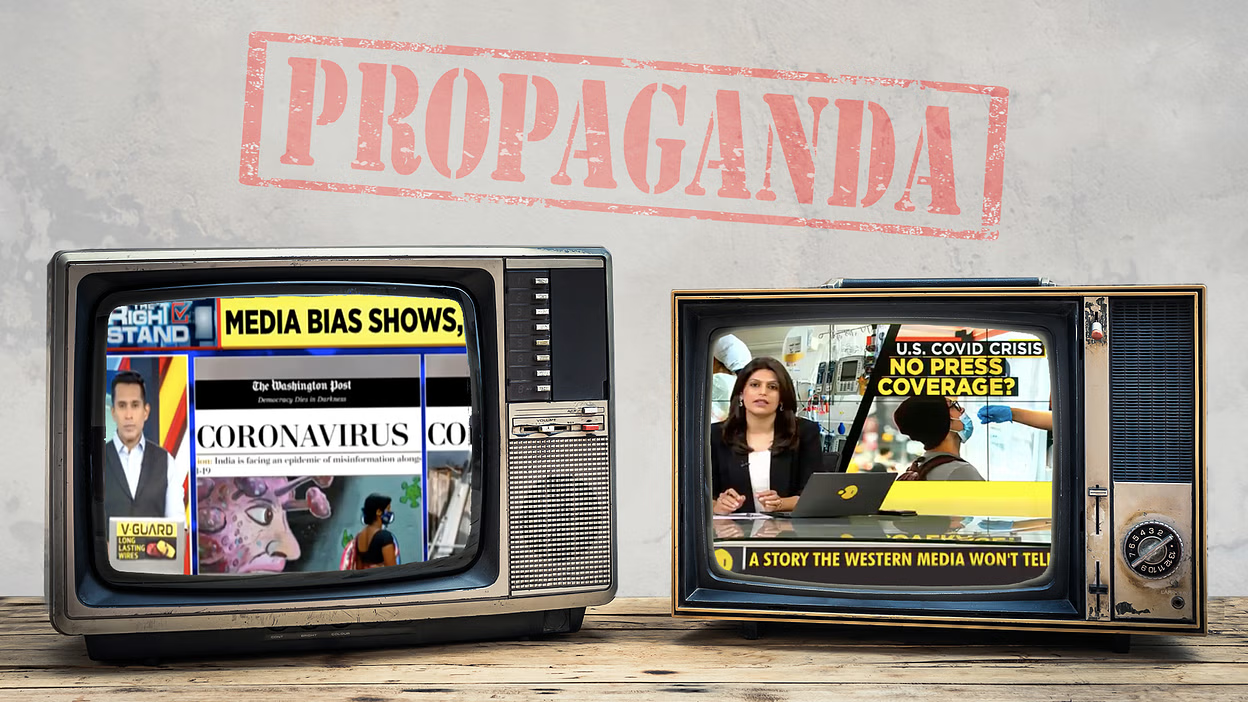
Since 1990, Sinclair has been on a buying binge that took it from being a bit player to the nation’s biggest owner of local stations. It also has attracted attention for its conservative political leaning. During the 2016 election campaign, for example, Sinclair stations aired 15 “exclusives” with Donald Trump. In 2017, it hired a former Trump White House official as its chief political analyst and made his commentaries must-run on all stations. Last year, all of its anchors were ordered to read an identical script that echoed Trump’s rhetoric about “fake news.”
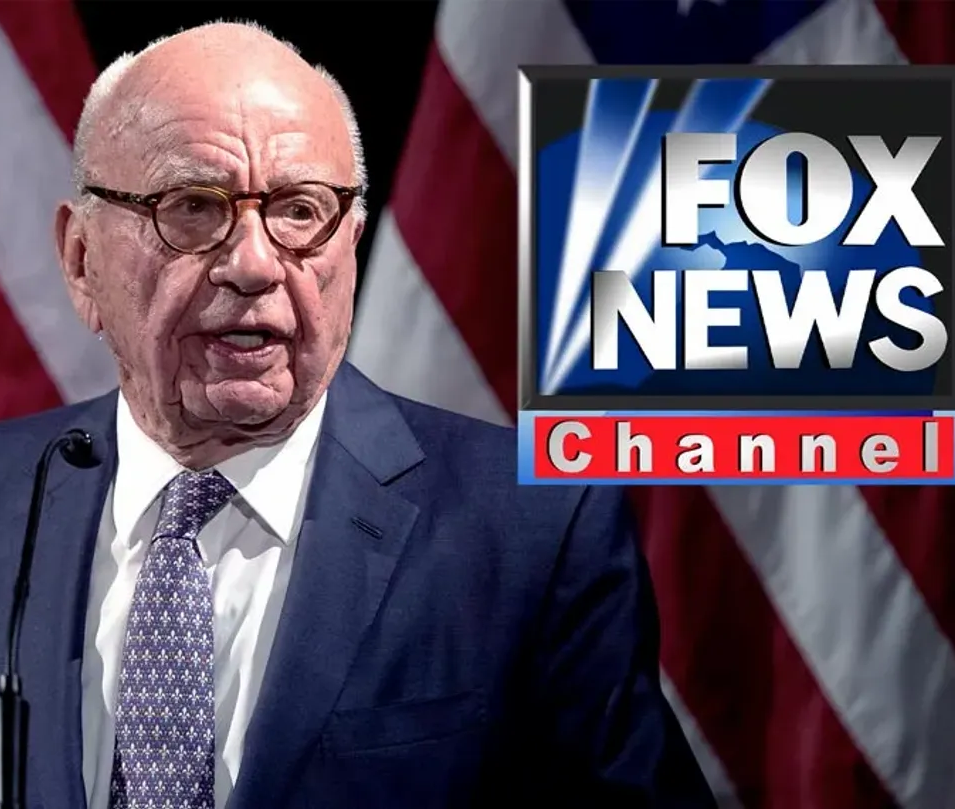

News and the profit motive.
Growing up in the 1960s, the major networks delivered news via Edward Murrow, Chet Huntley, David Brinkley, and Walter Cronkite. The nightly news was a significant investment the networks made to satisfy the public-service requirements of Congress and the FCC. The network news was considered the “crown jewel” of a network, and the networks would then generate advertising revenue from the entertainment that was typically scheduled to follow the news broadcast. As media consolidated there was far more pressure on network news to become profitable. The line between in-depth news and entertainment began to blur. What were once well-funded news divisions began to shed journalists and correspondents from foreign and domestic news bureaus and staff. This leads to a diminished breadth and quality of news coverage.
Entertainment, not journalism.
Rupert Murdoch’s Fox ‘News’ has taken a tabloid approach to what they characterize as news. Shouty mouth-breathers like Sean Hannity, Laura Ingraham, and Tucker … oh wait, not Tucker, use an Orwellian-style rabid approach telling viewers who to hate. Woke is socialism, Democrats are socialists, the public education system is radicalizing youth to hate America (apparently by teaching actual history), up is down, war is peace, and Donald Trump’s healthcare plan is better than any healthcare plan in the world (among healthcare plans no one has ever seen).
A 2012 study conducted by researchers at Farleigh Dickinson University concluded that media sources have a significant impact on the number of questions that people were able to answer correctly. The largest effect is that of Fox News: all else being equal, someone who watched only Fox News would be expected to answer just 1.04 domestic questions correctly (out of 4 questions) — a figure which is significantly worse than if they had reported watching no media at all.

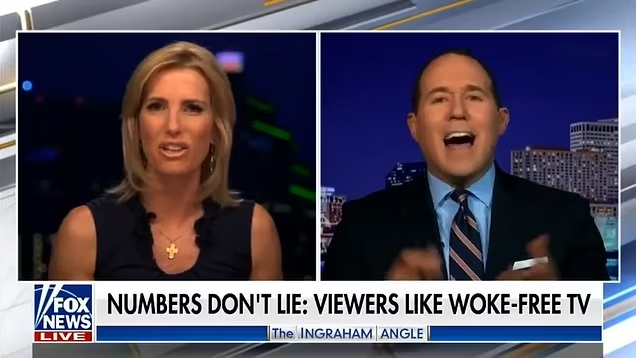
Attack Education:


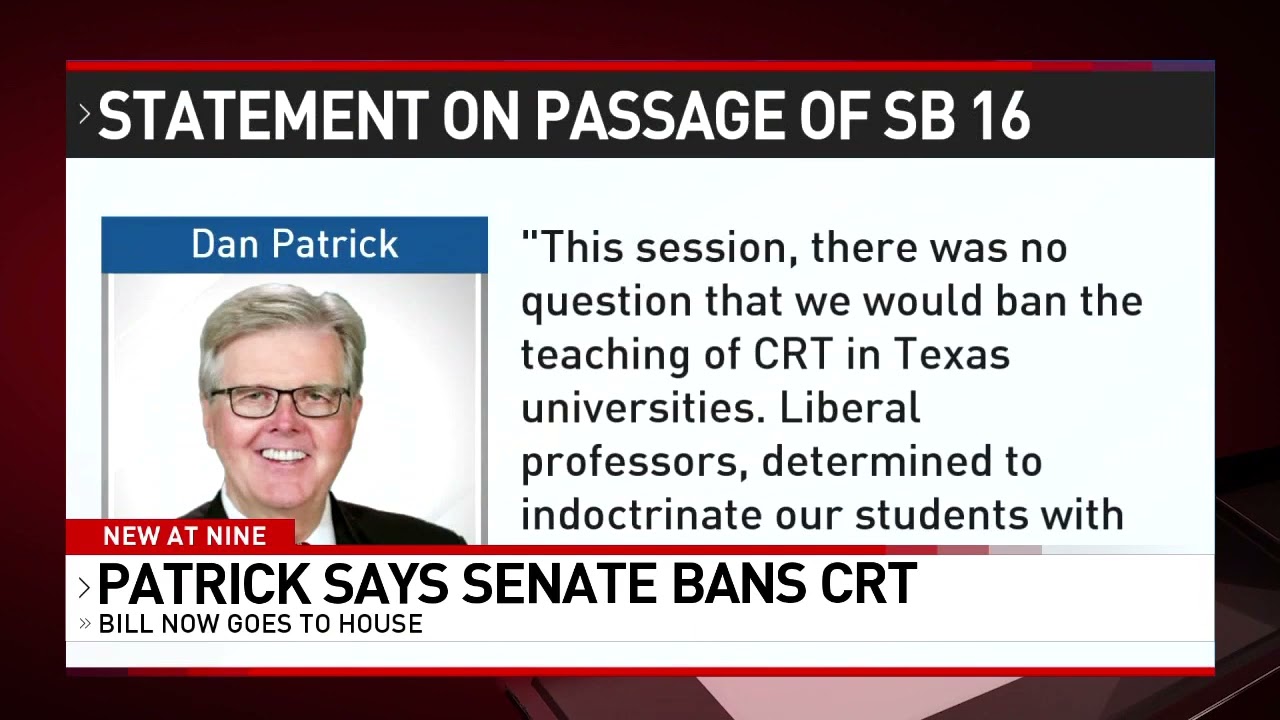
K-12
Politicize Textbooks and curriculum
Instead of teaching actual history (because apparently understanding racism and slavery might hurt the sensitive feelings of the children of Florida racists, Florida Governor Ron DeSantis has signed bans preventing the teaching of “Critical Race Theory” (which is fringe right-wing terminology for actual US History). He has also banned anything he perceives as “Woke” (fringe right-wing code word for thinking and feeling human beings).
Oh and hey Ron, I fixed the sign on your podium. You’re welcome.
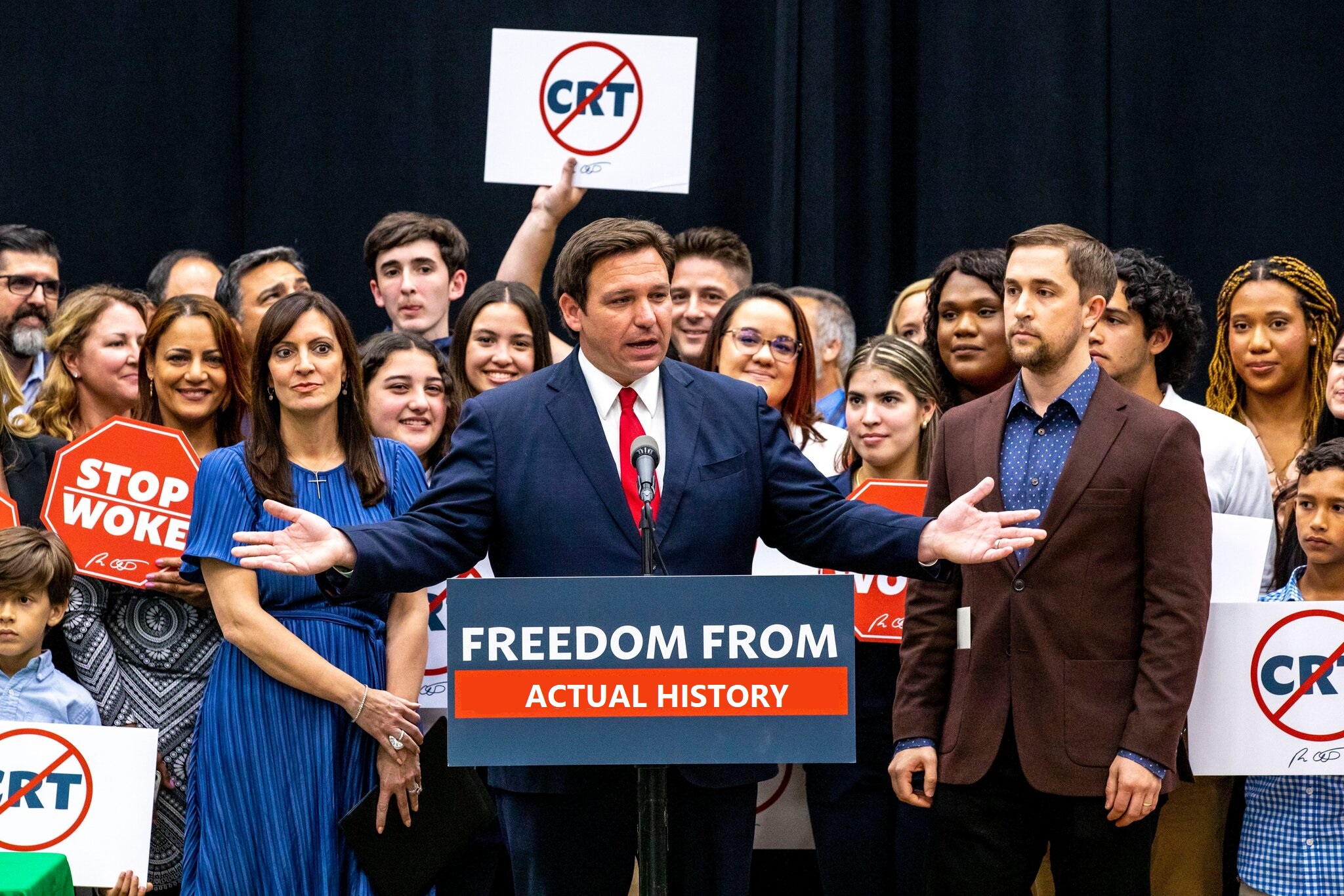
The politicization and continued attacks on textbooks and curricula are often funded by wealthy benefactors such as the following attempt at undermining science education. Big oil and coal would prefer that Americans believe that climate change is the result of the big hot orange thing in the sky getting better and better at doing its job, thus heating up the planet.
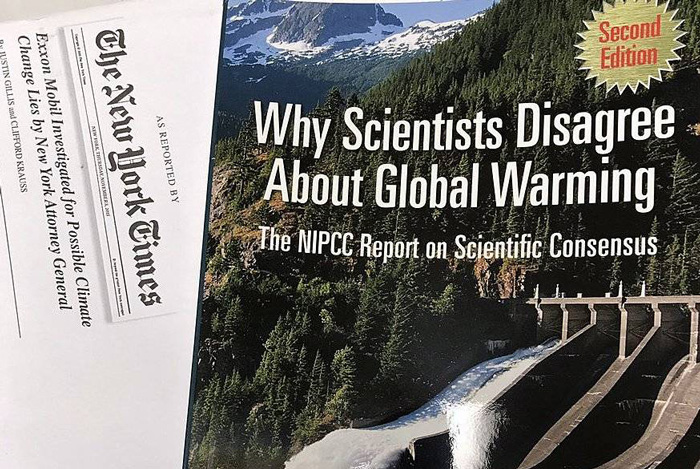
Thankfully, well-funded operations like the Koch’s Heartland Institute are stepping in to shape young, inquisitive minds. From their website: “From March through June 2017, The Heartland Institute mailed some 300,000 copies of the second edition of this book to K-12 and college science teachers across America.”
Well, that should give us all a peaceful feeling knowing that 3 scientists (the 3 being self-proclaimed youtube ‘experts’ or paid handsomely by the fossil fuel industry -or both) out of a 100 are still not convinced climate change is real, and they want young Johnny and little Jackie to love big oil and coal as much as their ancestors did (in spite of extreme, catastrophic weather events).
“Why Scientists Disagree About Global Warming” a book of debunked climate denial from the Heartland Institute. (for more about Big Oil propaganda masquerading as science, see the Guardian’s article here.)
Book bans.
So nothing says “freedom” like banning books you think will groom or indoctrinate little Johnny or Jackie because your parenting skills are so poor you would be hard-pressed to answer any questions about racism, misogyny, dystopian futures (or presents), violence, or people who might believe or love differently than you do. There is a significant amount of smiting, violence, and begat-ing in the Bible, interestingly that is never a book being considered for any bans. And I imagine if freedom of religion is important, if the Bible is to be found in the school library, I’m buoyed by the knowledge all other religious texts are available -including Satanism and Witchcraft?
Furthermore, it seems any book, whether banned or not, will increase the possibility that bullets fired from an assault rifle might be stopped in the backpack. The combination of “The Handmaid’s Tale” and “Of Mice and Men” would serve well, not only as important literature, and also, as a barrier.

Q: You know who I don’t ‘co-parent’ with?
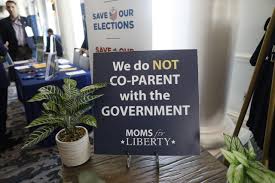
A: Book banning/burning morons.
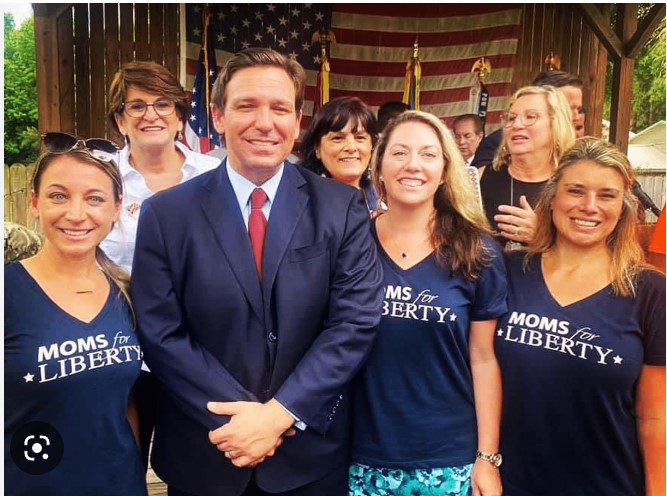
Overcrowded classrooms
How can any child get much individual attention when classrooms are overcrowded due to funding constraints as voters rejecting school bond issues, teacher shortages occur (see teacher salaries and expectations below), and shifting funds from public to private -and in some cases private religious schools).


Teacher salaries and expectations
An average full-time K-12 teacher in the United States works 2,160 hours per year. This includes classroom instruction time and non-classroom time (curriculum planning and preparation, lesson preparation, grading papers, extra help for students, and additional time required for ongoing training, certification, and administrative meetings. The average salary for a K-12 teacher is $59,811. This works out to $27.69 dollars per hour. By comparison, the average plumber earns $28.08 per hour. If we aspire toward democracy and agree that any meaningful form of democracy requires an educated populace, it seems we are not valuing those responsible for educating our children and grandchildren. Of course, in some states, we want to arm them to protect children from our lack of political will to address gun violence. The salary range for armed security guards typically falls between $41,349 and $53,724 (the midpoint is $47,537). So, as a society, if we want to arm teachers (notably in “Red” leaning states), they should add $47,537 to average teacher salaries because teachers will be educators and armed security. (And as an added bonus: a great way to control classroom sizes).
When considering average teacher salaries, teachers are more valued in “Blue” States than in “Red” States which exacerbates an education gap in America.
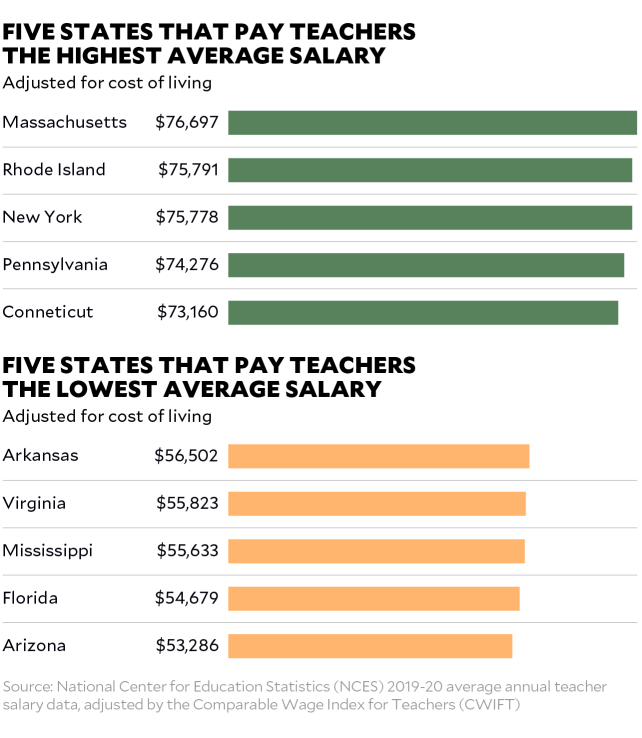
Colleges and Universities: Students get a debt-sentence
Using the momentum of his success in destroying higher education in California, as President, Reagan worked to decimate the affordability of higher education. His 1986 Federal budget proposed a 27% cut in financial aid to higher education students. This was an indirect attack on democracy.
In Orwellian speak, nothing charts a path to authoritarian control like a politician wrapping himself in the flag, looking into the camera, and talking about “freedom”. This is because a less educated society is easier to manipulate and control. A less educated society will accept terms like “trickle-down” as a form of economics (and not what it truly is: mass fraud perpetrated by the wealthy upon the rest of society). A less educated society will nod its head in agreement when they are told “Government is the problem, and we want a government so small and weak, we can drown it in the bathtub” -instead of recognizing that the only thing standing between society and a runaway corporate disaster like Union Carbide in Bhopal, India, PG&E in Paradise, California, or an exploding Ford Pinto is government.
Shifting the financial burden from society to students and their families, Reagan created the student loan industry. Prior to Reagan, a student could earn a degree and enter the job market well-prepared for a career and free of debt. Post-Reagan most students begin their careers already saddled with a significant student loan debt burden. This debt creates economic uncertainty, fear, and anxiety -all attributes that empower employers. It is much easier to exploit workers when they are worried about unemployment or underemployment while confronted with student loan payments, rent, healthcare, and other costs.
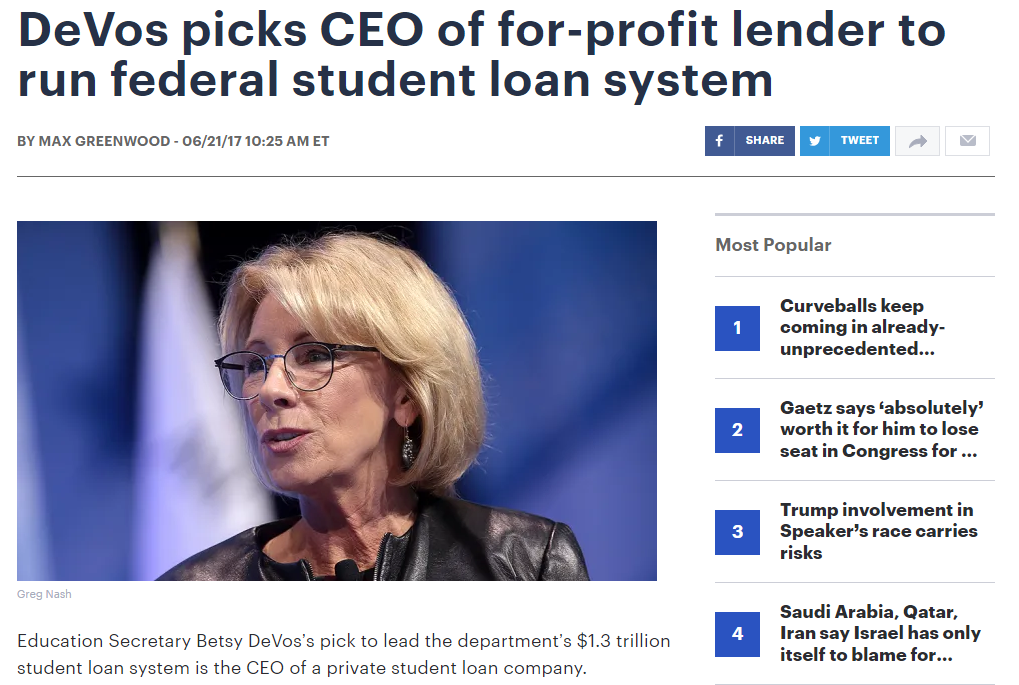

Attack Engagement: Economics
So we’ve discussed the attacks on information and education. What about civic engagement? A recent CNBC article noted that more than half of Americans couldn’t cover an unplanned emergency expense of $1,000. Post-pandemic, people are struggling to cover rent, car payments, student loan payments, healthcare, and basic living expenses. Some are working two or more jobs in order to make ends meet. If you are working, raising children, and just trying to survive, who has time to go to the town hall meeting, who has time to write a letter to the editor, call your Congressional representative’s office, or take the time to understand an array of issues and candidates on the ballot? As wealth inequality has been exacerbated by Reagan, Bush, and Trump tax cuts, privatization, and other means (which serve to directly concentrate power), there is an indirect benefit in the form of limiting civic engagement. As people have to work longer hours in order to struggle to make ends meet, the likelihood of civic engagement necessary for a meaningful democracy to survive suffers. By attacking and eroding the power of labor unions through the courts the wealthy receive a double bonus. Underpaid, undervalued, fearful employees are easier to manipulate and control. They work longer for less and then don’t have time or energy to organize.
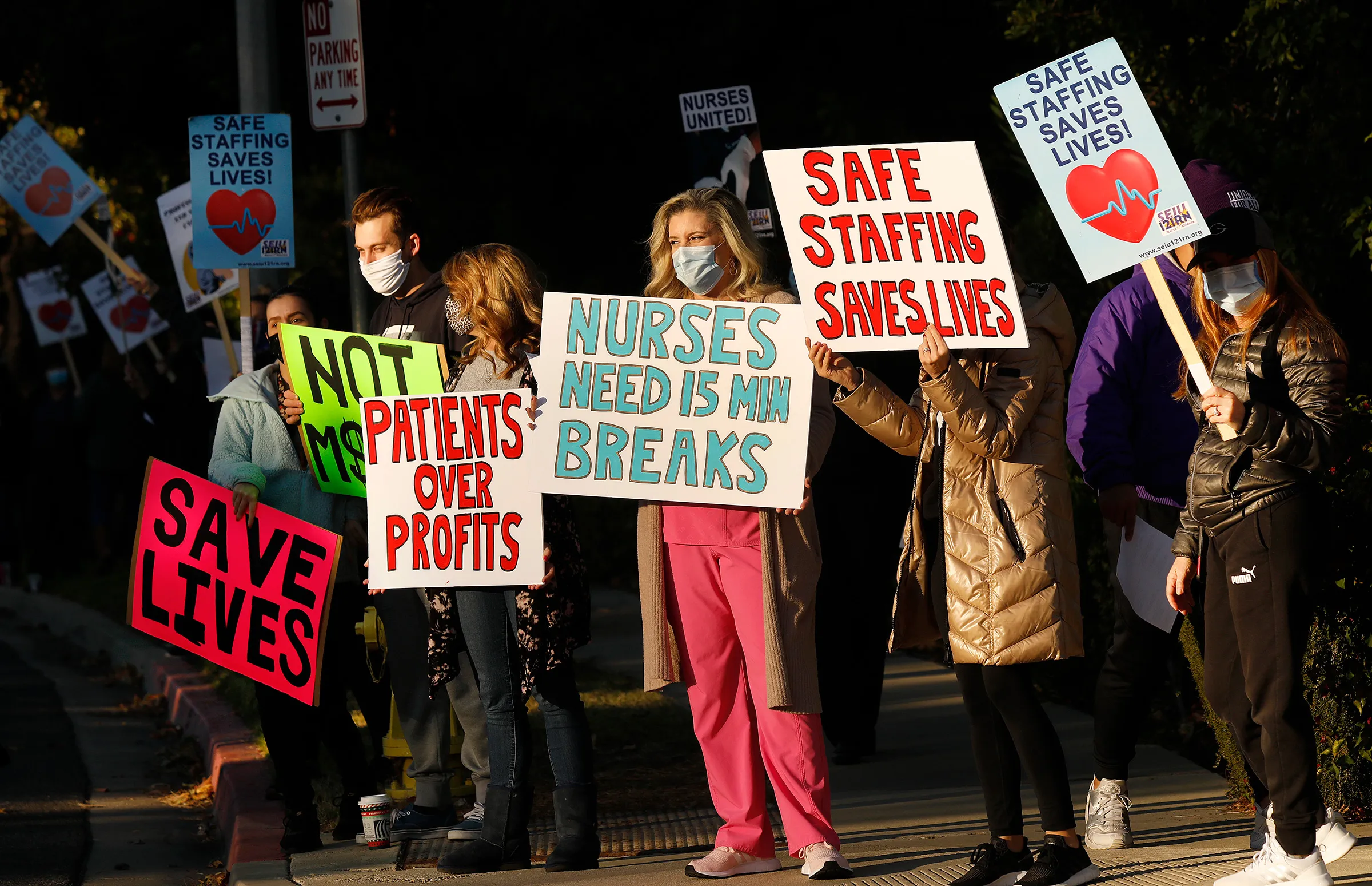
Negative Campaign Ads
Negative campaign ads also yield a double benefit in an attack upon democracy. First of all, negative ads work. They’ve been successfully used since at least 1964 in Lyndon Johnson’s infamous “Daisy Girl” advertisement. Now in every election cycle, we are guaranteed months of repetitive negative political ads that not only serve to change voter minds, they indirectly cause many voters to self-disengage from the political process entirely.
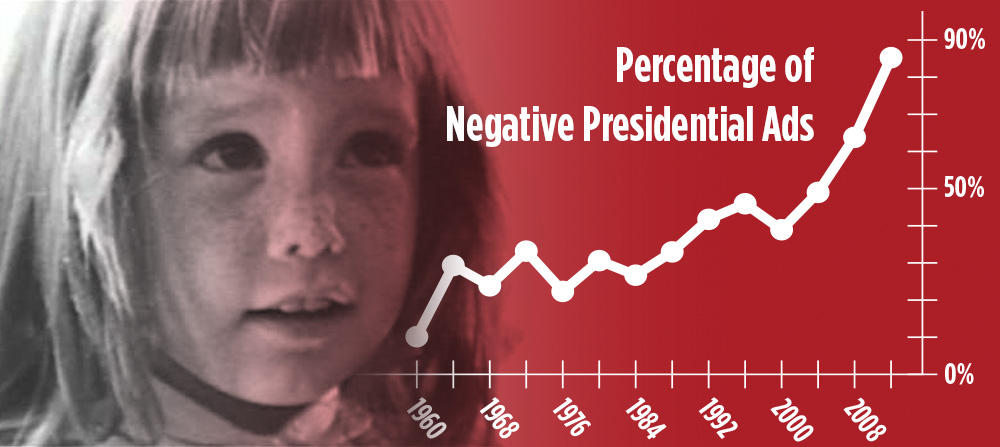

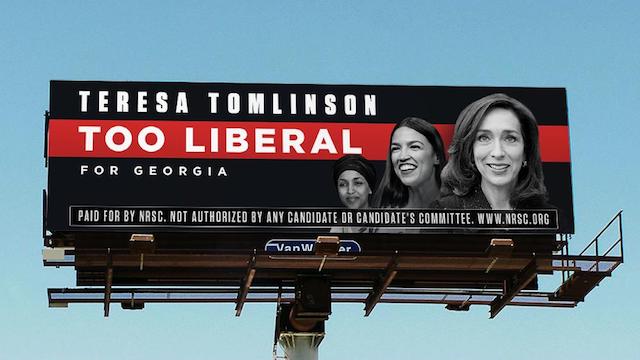

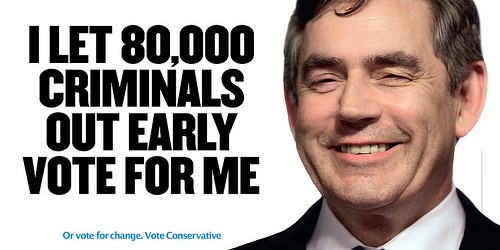
Politics is the new contact sport
“Big win for Biden”. “Republicans win on this.” “The Democrats win that.” Media treats changes in legislation and policy as sports entertainment. It’s not about “Red” winning or “Blue” winning. It is about whether the quality of average life is improved or diminished. When suddenly one party is calling those who have accumulated extreme wealth “job creators” -the media should be calling that out. When tax cuts are passed for the very wealthy, it’s not a “win” for the GOP. It represents an additional economic burden on every working American. When the normal retirement age for Social Security benefits is raised from 65 to 67 -or more, it’s not a win for a political party or a loss for the other party. It impacts every American who depends upon Social Security benefits for a decent retirement. We need to look beyond the rhetoric of media and politicians who want to reduce the impact of legislation and policy to a sporting win or loss. If the United States eventually joins other affluent nations who have universal healthcare coverage it is not a win for “socialists”. It would represent a win for every citizen who has to worry whether their diminishing insurance coverage will pay for a necessary life-saving procedure for their son or daughter.
This party “win or lose” mentality all feeds into a frame in which government exists to entertain you, instead of charting a path to a better future for all.
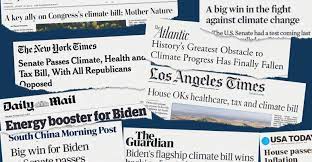
Wealth concentration versus democracy
A society can have meaningful democracy or extreme wealth concentration. They cannot co-exist. As wealth is concentrated, political power is concentrated. There is a massive accumulation of wealth and power in industries (such as the Fossil Fuel industry, Mass Media, Gun manufacturers, and the Pharmaceutical industry.
Massive wealth accumulation also exists at the individual level. In 2018 the three wealthiest Americans at the time had a combined wealth of the poorest half of America (165 million people).
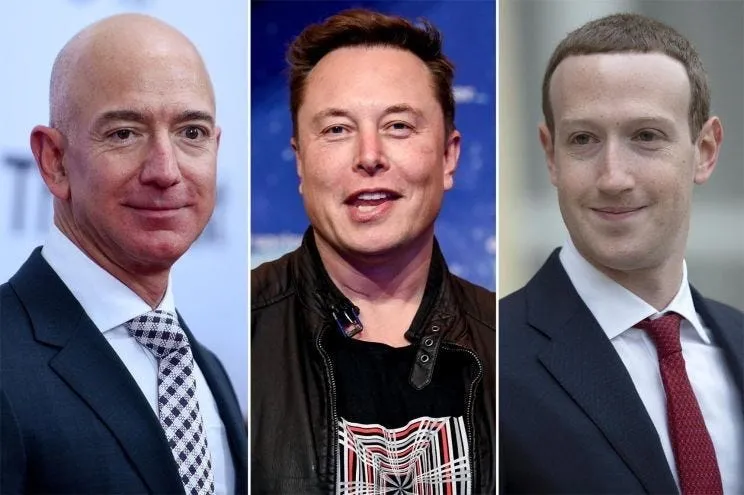
After the U.S. Supreme Court equated political contributions as constitutionally protected free speech (in the ‘Citizens United’ decision -See the Brennan Center for Justice explanation here) the ability of the wealthy few to enjoy a massive influence on elections has completely undermined representative democracy in the United States throughout the executive, legislative, and judicial branches of government. For example, an ultra-secretive billionaire, Barre Seid, recently donated $1.6 billion dollars to a group working to undermine equal justice by executing a plan for a complete right-wing takeover of the judicial system. Another wealthy donor, Harlan Crow has provided an array of previously unreported gifts and trips to ‘Justice’ Clarence Thomas.

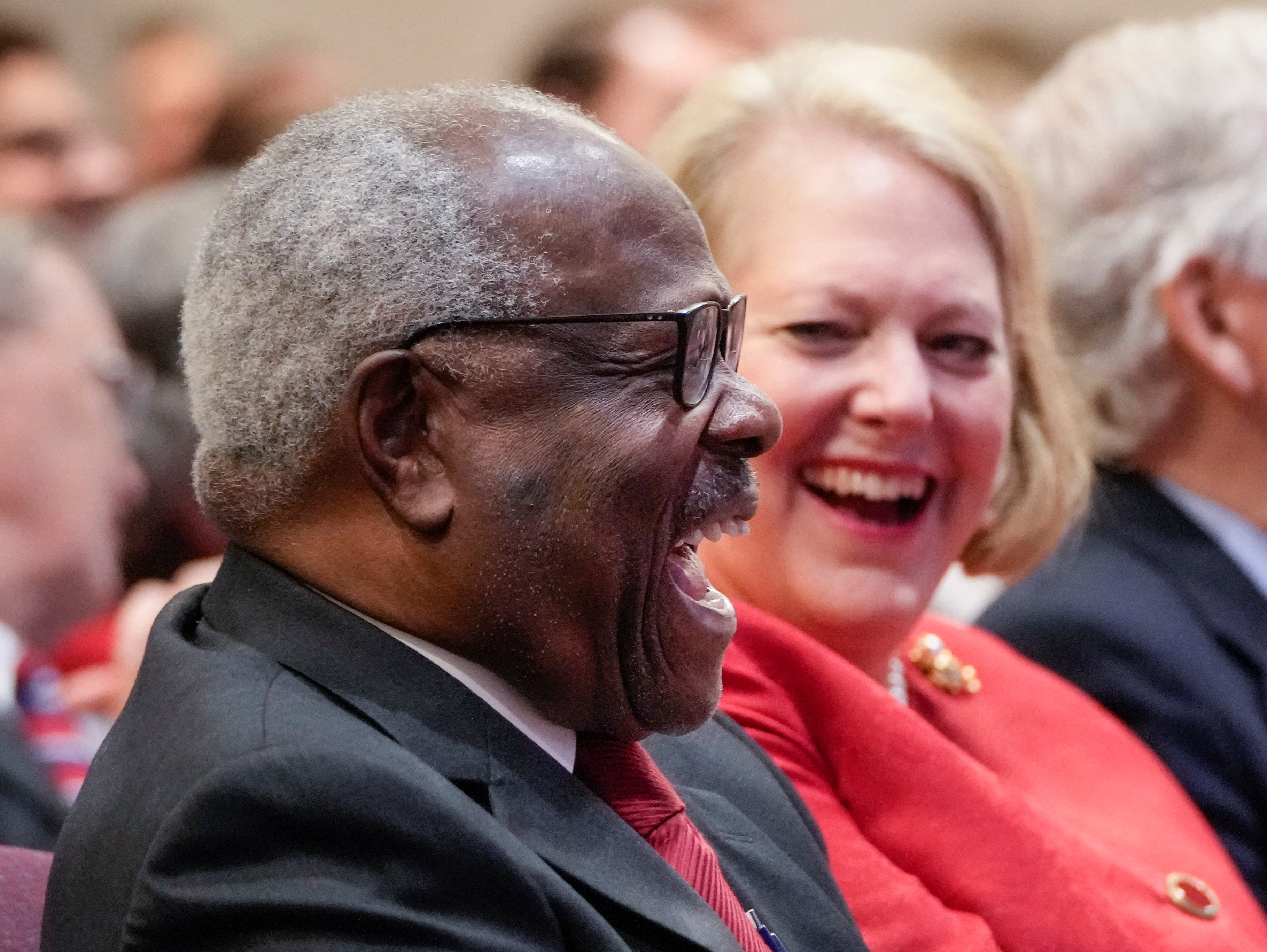
Nike co-founder Phil Knight has donated millions in order to overturn the advantage the Democratic party has maintained in the Oregon State legislature (and Governor’s office). Other billionaires like Peter Thiel, Larry Ellison, Robert Mercer, and David Koch have financially backed major candidates for office who will, if successful, return the favor with tax cuts, regulatory shortcuts, and other legislative and policy advantages unavailable for ordinary American taxpayers.
There’s some recent history to help understand how democracy has quietly been eroded in the United States for generations.
In the 1960’s -Civil Rights, Women’s Rights, Labor, Peace, environmental, and counterculture movements were gaining momentum in the United States. Diverse groups of Americans were beginning to form loose coalitions intending to improve the quality of life, and strengthen civil rights, labor rights, and more.
The wealthy patriarchy in America was becoming deeply concerned about an erosion of their power and political control.
On August 23, 1971, in reaction to intersecting movements, Lewis Powell’s Memorandum: “Attack on the American Free Enterprise System” was sent to the U.S. Chamber of Commerce.
The memorandum described concerns that the so-called “attacks” were joined by the academic community, the religious community, the media, intellectuals, artists, scientists, and politicians. It also stated that in many of those communities, the movement was primarily driven by minorities. Powell noted that college and university professors who were critical of the “American Free Enterprise” system were substantially funded by tax revenues collected from the American corporations and wealthy individuals “under siege”. He reminded the Chamber that media companies, including network television, were owned and controlled by corporations and depended upon the American enterprise system for revenue and profitability.
When you examine the Powell memorandum, it should be painstakingly clear that although the Memo is written as a defense of the American ”Free Enterprise” system, Powell is addressing how to grow and maintain a wealthy patriarchy’s control of concentrated wealth and power in America.
Viewing representative democracy as a disease, Powell essentially architected a power-concentrating antidote to representative democracy. It established a long-term infrastructure that has evolved, matured, and strengthened over the last 50 years.
The successful implementation beginning with the Reagan administration is the root cause of the rapid erosion of representative democracy in America. Ironically, while attacking the ability of workers to unite and collectively bargain, it effectively called for a union of corporations and the extremely wealthy to be represented by the U.S. Chamber of Commerce. Furthermore, while articulating support for intellectual freedom on college and university campuses, Powell called for the hiring of faculty supportive of right-wing perspectives. Powell did not question why so many of the most educated in American society embraced liberal views.
The Memo is at the heart of why many voters today continue to elevate corrupt and/or incompetent candidates to local, state, and national office. Powell’s comprehensive memo and its subsequent implementation have led to the erosion of public education, the consolidation of media, and the concentration of wealth. Understanding the history of the memo provides insight into why many support candidates and elected members who vote against the interests of most Americans on a variety of critical issues. These unqualified members vote consistently against issues such as expanding and protecting voting rights, education, affordable healthcare, fair taxation, climate action, gun violence prevention, labor rights, human rights, campaign finance reform, strengthening social security, and anti-corruption measures.
It has been 52+ years since Powell published his memorandum. To date, there has been no development of a progressive ecosystem providing a countervailing alternative in the United States. While there is cyclical talk about the importance of local elections and school boards, progressive media, and academic intellectual freedom, there has not been a comprehensive approach to planning the critical elements of the ecosystem, and funding has been inconsistent, narrow, and generally in issue-focused silos. The Democratic party largely abandoned rural areas, creating a vacuum of meaningful policy discourse and facilitating the rise of unqualified, or worse -election-denying extremist GOP candidates. Now even Sarah Palin has returned to the political scene, joining others who have no business in Federal, State, or Local leadership positions. Thankfully, the progressive ecosystem has not been completely abandoned -there are many great organizations and dedicated individuals working to address specific areas and issues.
Money and Short-Term Focus
Just as in all prior elections, I’m already drowning in 2024 campaign requests for contributions. “Tell the Supreme Court NO! -sign this petition and send $10 now!!!" Wow -I didn’t realize a Supreme Court decision was that simple. I can close my eyes and visualize ‘Justice’ Thomas thinking, “Ginni and I just had this amazing European vacation completely paid for by Harlan Crow, but George Polisner and 9,121 others signed this petition, so I guess I’m going to join the opinion against ‘Citizens United’.”
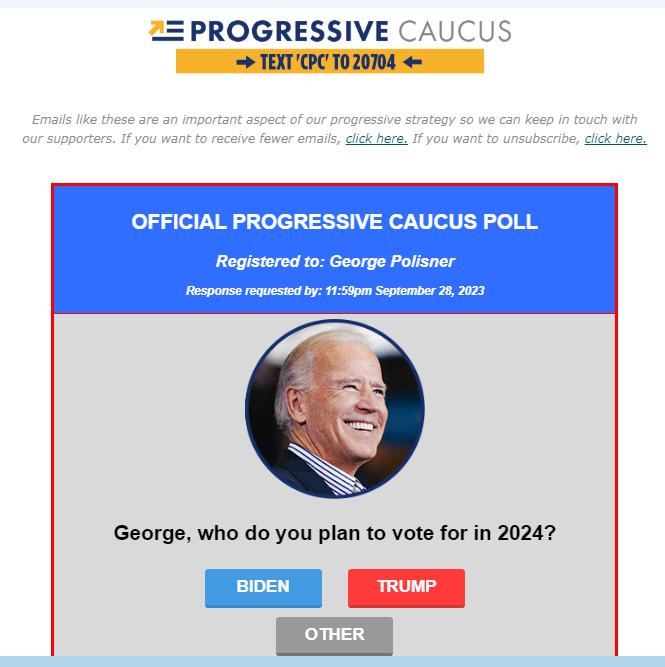
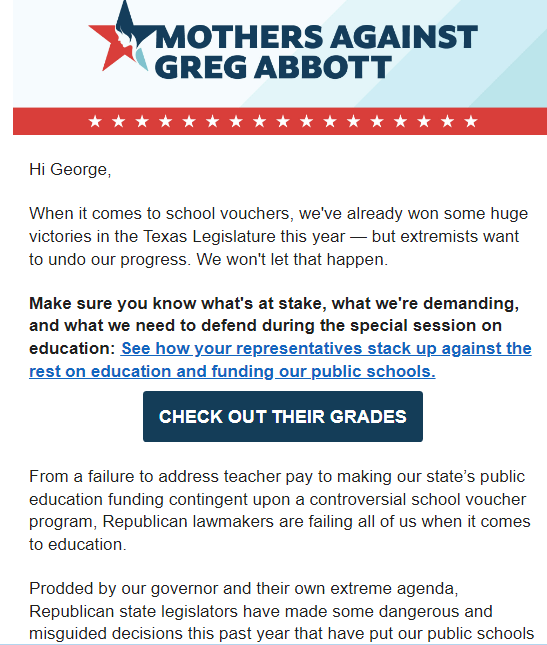

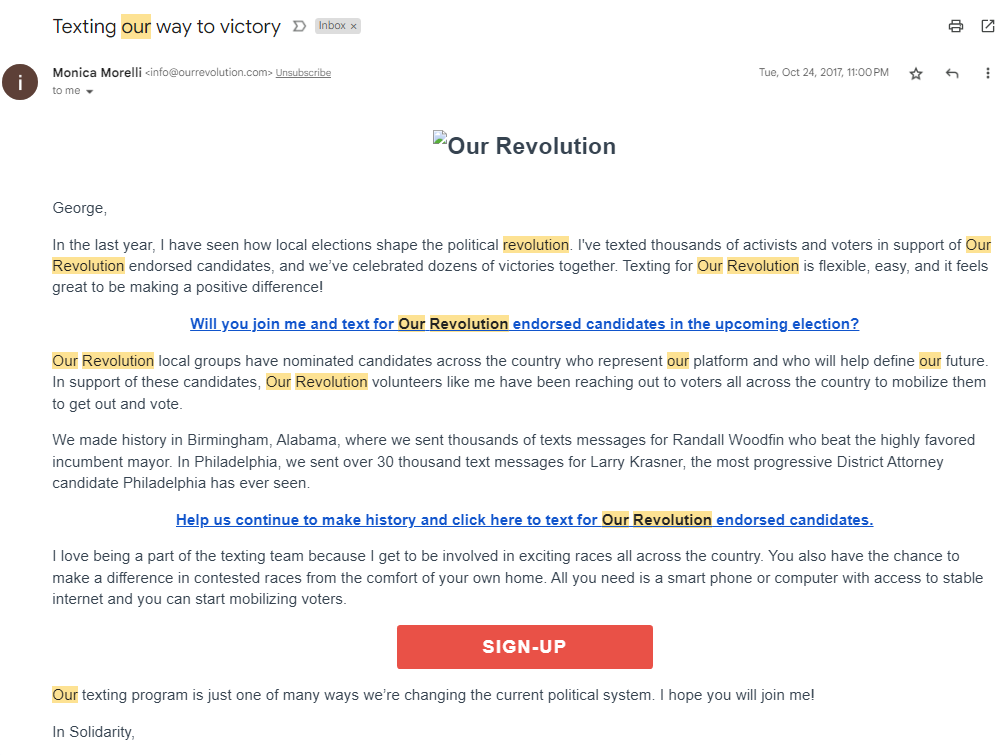
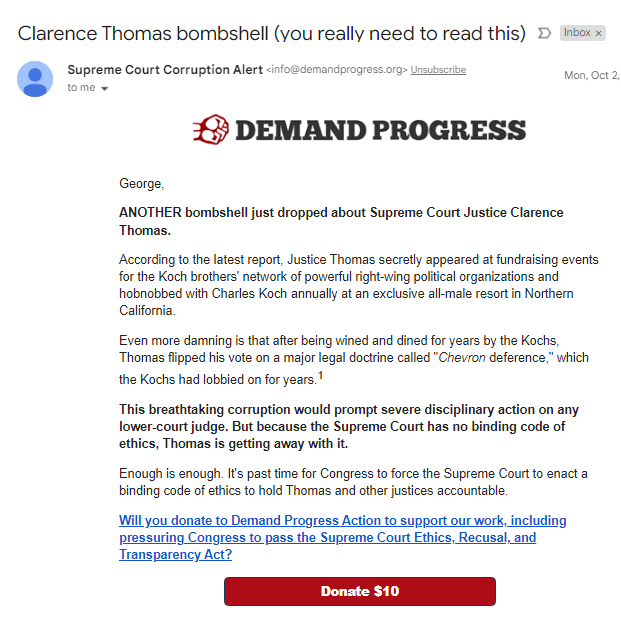
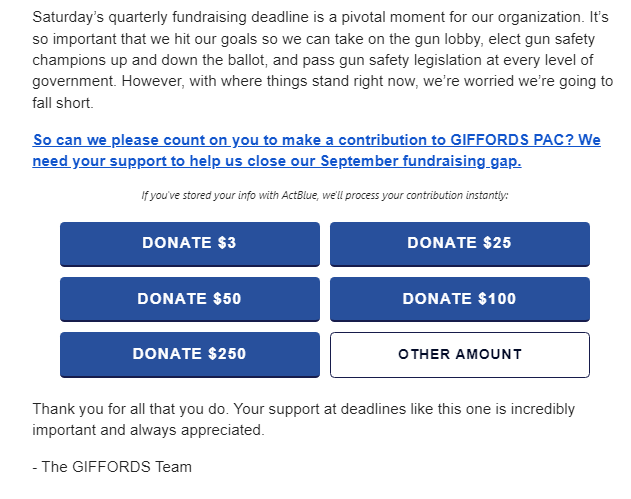
I’m not saying campaigns and organizations don’t need your donations. Our present system means that any successful campaign, from local School Board elections all the way to Presidential campaigns requires massive amounts of money, they do. What I’m saying is that if we just accept the status quo, if we do not reflect upon a system that begins with a 95 to 5 advantage and is barely able to produce a razor-thin advantage in the U.S. Senate, while losing the House of Representatives, at a certain point (possibly as early as 2024) we will no longer have any realistic pathway to representative democracy -America will be a failed experiment.
This will be our failure to recognize that the forces of extreme wealth concentration are not only equipped to match all of the United States dollar for dollar in short-term election cycles, but they have successfully established long-term infrastructure such as broadcast and print media empires, social media empires, think tanks like the Heritage Foundation, the Heartland Institute, Americans for Prosperity, The Federalist Society, the American Legislative Exchange Council, and more. The Powell-architected infrastructure has led to extreme wealth (and thus power) concentration.
An unabashed ad for the Civic Works project
The outcome of the 2024 U.S. elections will provide a path toward democracy, justice, and equity. Or the outcome can bring America toward an extreme concentration of wealth, power, and authoritarian control.
At Civic Works Corporation we are in the midst of a crowdfunded seed round. Your investment is not only a valued investment in building an ad-free Civic Social Network as a countervailing force against billionaire-owned media such as Meta/Facebook and Twitter/X.
Invest in Civic Works: (https://wefunder.com/civic.works.corporation)
It's an investment in democracy.


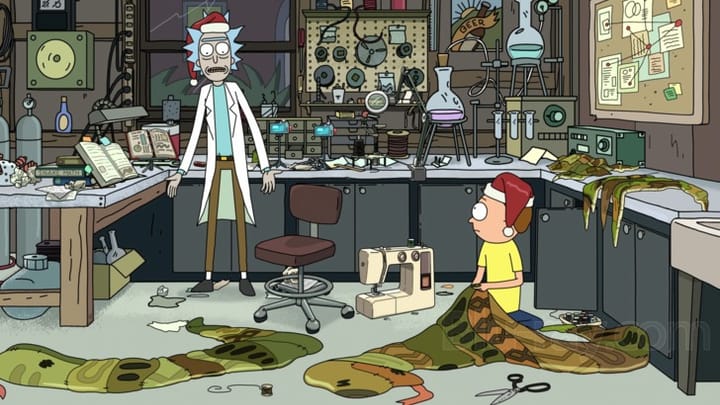

Comments ()